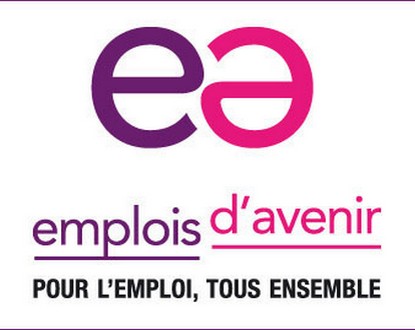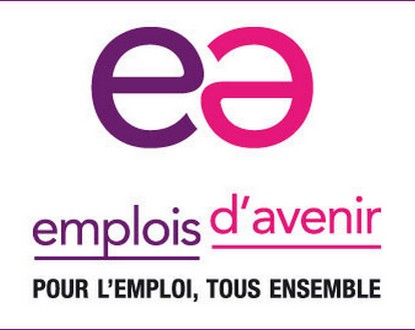Over 120,000 young people leave the educational system each year without a diploma. In total, in 2011, it was estimated that around 500,000 young people aged 16 to 25 were without employment and training. This category of unemployed is close to 30% and can exceed 40% in sensitive urban areas. Addressing this situation is a moral imperative more than a social one. A legislative framework was put in place to create 150,000 jobs by the end of 2014.
 This law, called “Emplois d’Avenir,” aims to combat this scourge with support and funding measures* so that eligible young people can gain initial work experience and a period of skill acquisition or professional qualification, which is a guarantee of sustainable professional inclusion.
This law, called “Emplois d’Avenir,” aims to combat this scourge with support and funding measures* so that eligible young people can gain initial work experience and a period of skill acquisition or professional qualification, which is a guarantee of sustainable professional inclusion.
What is the situation in Nice and the Alpes-Maritimes?
For Pascale Gérard, regional councilor delegated to professional training responsible for this mission: “Michel Vauzelle was one of the first Regional Presidents to sign the agreement with the State. The Region has a budget of 150 million euros to support the implementation of the measure. At the regional level, the target is 7,744 positions (excluding National Education), which means between 1,100 and 1,200 positions for the Alpes-Maritimes.”
In the Alpes-Maritimes, the situation (as of the end of April) is practically stalled: 171 contracts signed, including 26 by local authorities, with none in Nice!
A frankly dismal assessment, which allows Pascale Gérard to say that “The UMP elected officials and Christian Estrosi, for purely political reasons, refuse to work with the government to create jobs for our young people.”
The accusation is there, and the facts will soon reveal whether it is justified or not.
However, given the emergence of the notion that the general interest should belong neither to the right nor to the left, neither to the majority nor to the opposition, but aim for public service to citizens, it would be desirable that situations classified as “in the process of investigation” or “in the process of identifying needs” (as defined in bureaucratic language) reach a conclusion in a reasonable and logical time frame.
After all, one is entitled to wonder about the gap between the citizen, politics, and public function!



